Company Cyber Security Posture
NANA
NA Company Details
NA
NA
NA
NA
NA
NA
Scan still pending
NA
NA
Between 200 and 800
This score is AI-generated and less favored by cyber insurers, who prefer the TPRM score.
 NA Global Score
NA Global Score.png)

Company Scoring based on AI Models
| Model Name | Date | Description | Current Score Difference | Score |
|---|---|---|---|---|
| AVERAGE-Industry | 03-12-2025 | This score represents the average cybersecurity rating of companies already scanned within the same industry. It provides a benchmark to compare an individual company's security posture against its industry peers. | N/A | Between 200 and 800 |
Company Cyber Security News & History
| Entity | Type | Severity | Impact | Seen | Url ID | Details | View |
|---|
Company Subsidiaries

NA
Access Data Using Our API

Get company history
.png)
NA Cyber Security News
Computer engineering student builds cybersecurity solutions for Joby Aviation
For cybersecurity intern and UC Santa Cruz student Shipra Ithal, the most rewarding part of her summer experience at local aircraft company ...
The importance of cybersecurity training in aviation
Qasim Bhatti, CEO of Meta1st, discusses why security awareness training is now a non-negotiable requirement for reducing human risk.
What AI can learn from aviation safety
A key vulnerability of AI systems is prompt-injection attacks, where attackers manipulate a model into revealing sensitive data or altering its ...
Joby Completes Submission of Stage Three Certification Plans to the FAA
Joby Aviation, Inc. (NYSE:JOBY) is a California-based transportation company developing an all-electric, vertical take-off and landing air taxi ...
Toyota invests $500m in Joby Aviation’s eVTOL development
Automotive manufacturer Toyota Motor Corporation is investing $500m into electric vertical takeoff and landing (eVTOL) company Joby Aviation to ...
Joby breaks ground on expanded California facility
Joby Aviation broke ground last week on the expansion of its pilot production line in Marina, California, as the electric taxi maker looks to ...
Joby Aviation Reports 2023 Earnings, Achieves Key Air Taxi Certification Milestone
The company is now ramping up to for-credit FAA testing and expects to produce 12 aircraft this year, among other projections.
Joby Aviation and Virgin Atlantic partner to launch electric air taxis in the UK
Joby Aviation is partnering with Virgin Atlantic to launch electric air taxis in the U.K., marking the seventh country in which the startup ...
Dubai’s RTA eyes quantum tech to predict traffic congestion, plan smarter routes
Dubai: Dubai's Roads and Transport Authority (RTA) is actively exploring quantum solutions for real-world transport challenges like traffic ...

NA Similar Companies
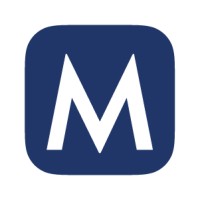
Menzies Aviation
People. Passion. Pride. These have driven our team since 1833. Since that time, we have developed to become a critical partner in the global aviation industry, delivering time-critical logistics services at over 300 locations in 65 countries, across six continents. But at the heart of our
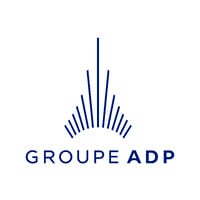
Groupe ADP
Le Groupe ADP construit, aménage et exploite des plates-formes aéroportuaires de manière responsable et à travers le monde, parmi lesquelles Paris-Charles de Gaulle, Paris-Orly et Paris-Le Bourget. En 2023, le groupe a accueilli sous sa marque Paris Aéroport 99,7 millions de passagers sur Pari
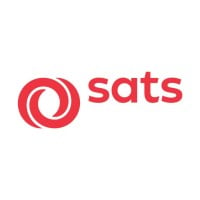
SATS Ltd.
Headquartered in Singapore, SATS Ltd. is one of the world’s largest providers of air cargo handling services and Asia’s leading airline caterer. SATS Gateway Services provides airfreight and ground handling services including passenger services, ramp and baggage handling, aviation security servi
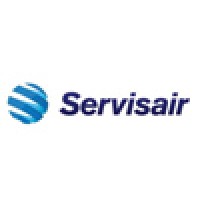
Servisair
Servisair is a leading global provider of aviation ground services delivering an integrated range of handling solutions across 128 locations. We form part of the Derichebourg Group, which also has divisions in Corporate and Environmental Services, collectively employing 47,000 staff throughout 30
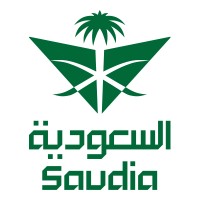
SAUDI AIRLINES
At Saudia Group, we're on a mission to inspire people to go beyond borders. Our purpose is rooted in unlocking human potential and connecting the world in ways never thought possible. We are committed to reshaping the aviation ecosystem in our region and beyond, by embracing innovation and a custome
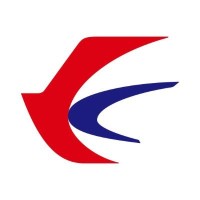
China Eastern Airlines, North America
As one of the three major air carriers in China, headquartered in Shanghai, China Eastern Airlines operates 111 domestic and overseas branches across the globe. Flying a fleet of 730 aircraft which is one of the youngest fleets in major airlines worldwide. Moreover, it boasts the largest-scale in-fl

Frequently Asked Questions
Explore insights on cybersecurity incidents, risk posture, and Rankiteo's assessments.
NA CyberSecurity History Information
How many cyber incidents has NA faced?
Total Incidents: According to Rankiteo, NA has faced 0 incidents in the past.
What types of cybersecurity incidents have occurred at NA?
Incident Types: The types of cybersecurity incidents that have occurred include .
Additional Questions
What Do We Measure?
















Every week, Rankiteo analyzes billions of signals to give organizations a sharper, faster view of emerging risks. With deeper, more actionable intelligence at their fingertips, security teams can outpace threat actors, respond instantly to Zero-Day attacks, and dramatically shrink their risk exposure window.
These are some of the factors we use to calculate the overall score:
Identify exposed access points, detect misconfigured SSL certificates, and uncover vulnerabilities across the network infrastructure.
Gain visibility into the software components used within an organization to detect vulnerabilities, manage risk, and ensure supply chain security.
Monitor and manage all IT assets and their configurations to ensure accurate, real-time visibility across the company's technology environment.
Leverage real-time insights on active threats, malware campaigns, and emerging vulnerabilities to proactively defend against evolving cyberattacks.




